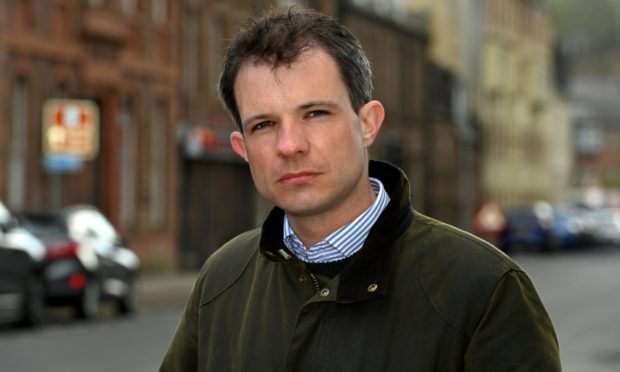A north-east MP has opened up about praying for his grannies’ recovery as a child, after dementia turned them into “shadows of their former selves”.
Andrew Bowie spoke in the House of Commons yesterday as part of a general debate to mark Dementia Awareness Week.
In 2015, the illness overtook heart disease and stroke as the UK’s most common cause of death.
And the most recent stats show that, in the north-east alone, more than 4,000 people were diagnosed with dementia in 2019 alone.
Charity Alzheimer’s Research UK reports there are 850,000 people throughout the country currently living with the illness.
By 2025, this number is expected to reach one million.
Andrew Bowie, the Scottish Conservative MP for West Aberdeenshire and Kincardine, said dementia stripped his grandmothers of their “animated, proud (and) fun” personalities.
“As time went on both went from being very active in the lives of their families and wider communities to shadows of their former self,” he said.
“It not only, as people here know, affects their memory but their ability to do even the most basic things and eventually both were left unable to speak.
“And I vividly remember as a little boy lying in my bed praying that God would return my grandmother that I knew when I was much younger, that she would once again be able to recognise me.
“My family’s experience is not unusual, rather, it’s a story replicated hundreds of thousands of times across this country and indeed others.”
Post-Covid hopes for dementia breakthroughs
Mr Bowie is hopeful that scientists can “replicate” the spirit of collaboration regarding Covid-19 vaccines in other areas.
He added: “There’s a great lesson to be learned here and it’s one that for the most part we all know to be true – that is when we focus our attention and come together with a common purpose, we can achieve great things.
“We must make advantage of improvements in imaging, artificial intelligence and genetics and look to transform early detection so that treatment has at least a chance of being effective.
“For all its sadness and turmoil, this year has proved that it is within our power, with the help of research and science to deliver life changing results.”
Research funding boost ‘vital’
David Thomas, head of policy at Alzheimer’s Research UK, said: “If we are to find the life-changing treatments and therapies we so desperately need, there must be an increase in dementia research funding.
“Andrew Bowie’s comments on his grandmothers’ experiences of living with dementia highlight the desperate need to find new treatments.
“Mr Bowie rightly says the outstanding efforts of our scientists and researchers in producing a vaccine for Covid-19 has shown what can be done when we all work together.
“The debate on dementia in Parliament was a welcome step forward and we hope this will lead to the UK government meeting its commitment to double funding on dementia research.
“With the help of additional funding and priority from government, we can improve diagnosis rates, recruit more participants into clinical trials for potential new treatments, and understand more about the diseases that cause dementia so we can find ways to cure them.
“There are nearly a million people with dementia in the UK, and it has been nearly 20 years since we last had a drug treatment for the condition.
“If we do not do more now to tackle this growing crisis, many more people will continue to suffer the fear, harm and devastation caused by this condition.
“We encourage anyone who has not already done so to sign our petition urging the government to deliver on its election promise to double dementia research funding.”
